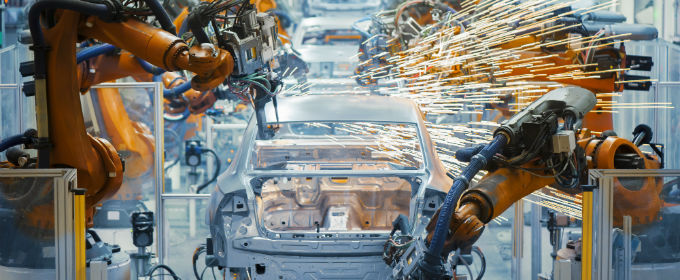Ready to learn Data Science? Browse courses like Data Science Training and Certification developed by industry thought leaders and Experfy in Harvard Innovation Lab.


Computers are everywhere with a myriad of consumer, automotive, medical and communications devices hosting microprocessors and the Internet of Things will result in an increase in reliance on this technology. In this blog, Steve Furber, Professor of Computer Engineering, discusses the challenges for Dr Patrick Vallance, the new Government Chief Scientific Advisor on artificial intelligence, machine learning and the Internet of Things.
- The UK company Arm Ltd alone has seen over 100 billion of its microprocessors shipped worldwide and the rapidly emerging Internet of Things is expected to result in this number being increased ten-fold.
- Today, machine learning networks require the scale of computing resources found only in large data centres, but the scale of the Internet of Things will require that these capabilities are pushed out from the cloud to the edge, and into mobile devices themselves.
- Enormous resources are being mustered world-wide to address the challenges and opportunities presented by the developments in machine learning, AI, and IoT. The UK is well-placed to contribute, but this will require commitment and focus from government, industry and academia:
Computers are everywhere – the UK-based company Arm Ltd develops microprocessor designs, over 100 billion of which have been shipped by Arm’s global semiconductor partnership network. That’s more than ten Arm computers for every human on the planet. Arm’s designs are used in 95% of all mobile phones, including the iconic Apple iPhone, and in a myriad of other consumer, automotive, medical and communications devices.
This year Arm was bought for £24 billion by SoftBank, the Japanese technology conglomerate. SoftBank’s objectives for Arm are to expand the business to address the rapidly emerging Internet of Things (IoT) market where the company expects to ship a trillion processors through its partnership network – ten times the already very large number shipped to date. The IoT anticipates that every light bulb will be controlled via the internet, along with a host of sensors and actuators throughout every building, structure, vehicle, the human body and home. The benefits of the IoT include more efficient use of energy, better safety and security, improved health management, increased automation, and so on. Clearly, Dr Patrick Vallance the new Government chief Scientific Advisor will need to understand the challenges and implications of this.
Intelligent control and coordination
All of these IoT devices will require intelligent control and coordination, and over the last decade, spectacular strides have been made in machine learning and artificial intelligence (AI) systems, again with leading contributions from the UK’s DeepMind(now owned by Google). The high-profile tip of the iceberg was in 2016 when DeepMind’s AlphaGo beat Lee Sedol, one of the world’s best Go champions; this feat was considered much harder and further away back in 1997 when IBM’s Deep Bluebeat the reigning world chess champion, Garry Kasparov. The key to this rapid acceleration in progress from Deep Blue to AlphaGo is in the use of brain-inspired (though not very brain-like) artificial neural networks, which also underpin the progress in web search, speech recognition, image classification, language translation, computer vision, autonomous vehicles, robotics, and many other emerging applications.
Today, machine learning networks require the scale of computing resources found only in large data centres, but the scale of the IoT will require that these capabilities are pushed out from the cloud to the edge, and into mobile devices themselves. This will require challenging advances in energy-efficient computing, the area of business where Arm is world-leading. IoT devices will make a great deal of information available, with associated issues of data protection and cybersecurity. Where the potential exists to use the internet to disrupt the control of critical equipment, such as an autonomous vehicle, security matters must be paramount.
Government, industry and academic commitment
Enormous resources are being mustered world-wide to address the challenges and opportunities presented by the developments in machine learning, AI, and IoT. Dr Patrick Vallance will quickly recognise that the UK is well-placed to contribute, but will require commitment and focus from government, industry and academia:
- Issues of privacy, security and safety will require regulation. This will be made more difficult by the very rapid rate of change of the capabilities of deployed machine learning and AI systems. Legislation will have to track this whilst, as far as possible, not impeding progress.
- Industry must be prepared to take advantage of the opportunities presented by machine learning, AI and the IoT. This can be encouraged through Innovate UKinitiatives, but will also depend upon the availability of technology entrepreneurs and venture capital.
- UK universities are well-placed to generate the research to underpin these technological advances, provided that funding bodies and research councils recognise the relevant research priority areas.
- UK universities are not producing nearly enough graduates in relevant subject areas to meet industry demands. Addressing diversity and gender issues in subject choices at school could make a significant contribution here!
Originally published on the Policy@Manchester blog site




I need to to thank you for this excellent read!! I absolutely loved every bit of it. I’ve got you saved as a favorite to check out new things you post…|
Thanks on your marvelous posting! I quite enjoyed reading it, you may be a great author. I will make sure to bookmark your blog and may come back in the foreseeable future. I want to encourage yourself to continue your great writing, have a nice holiday weekend!|
Thanks Derek! Please subscribe to Experfy blog